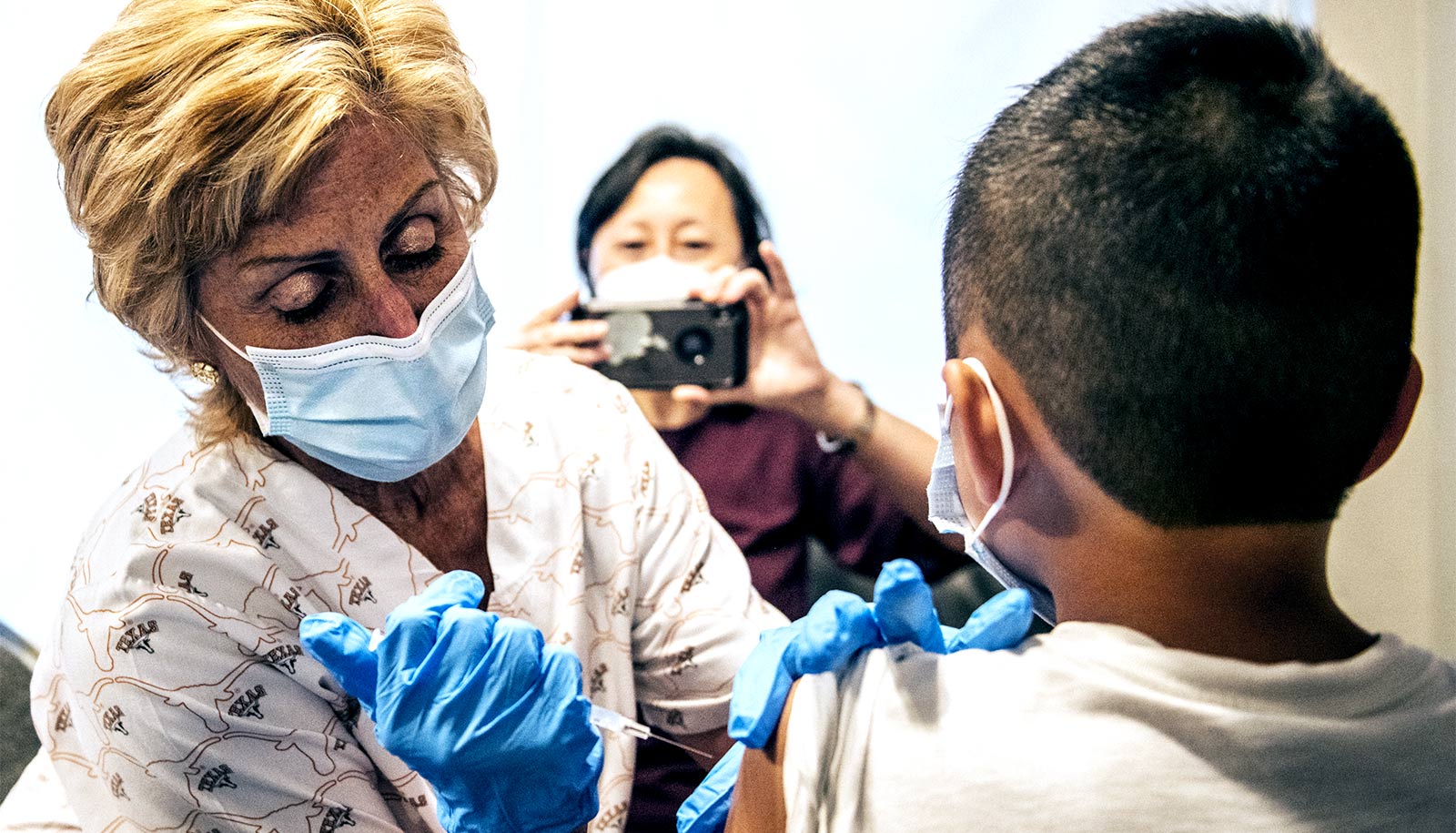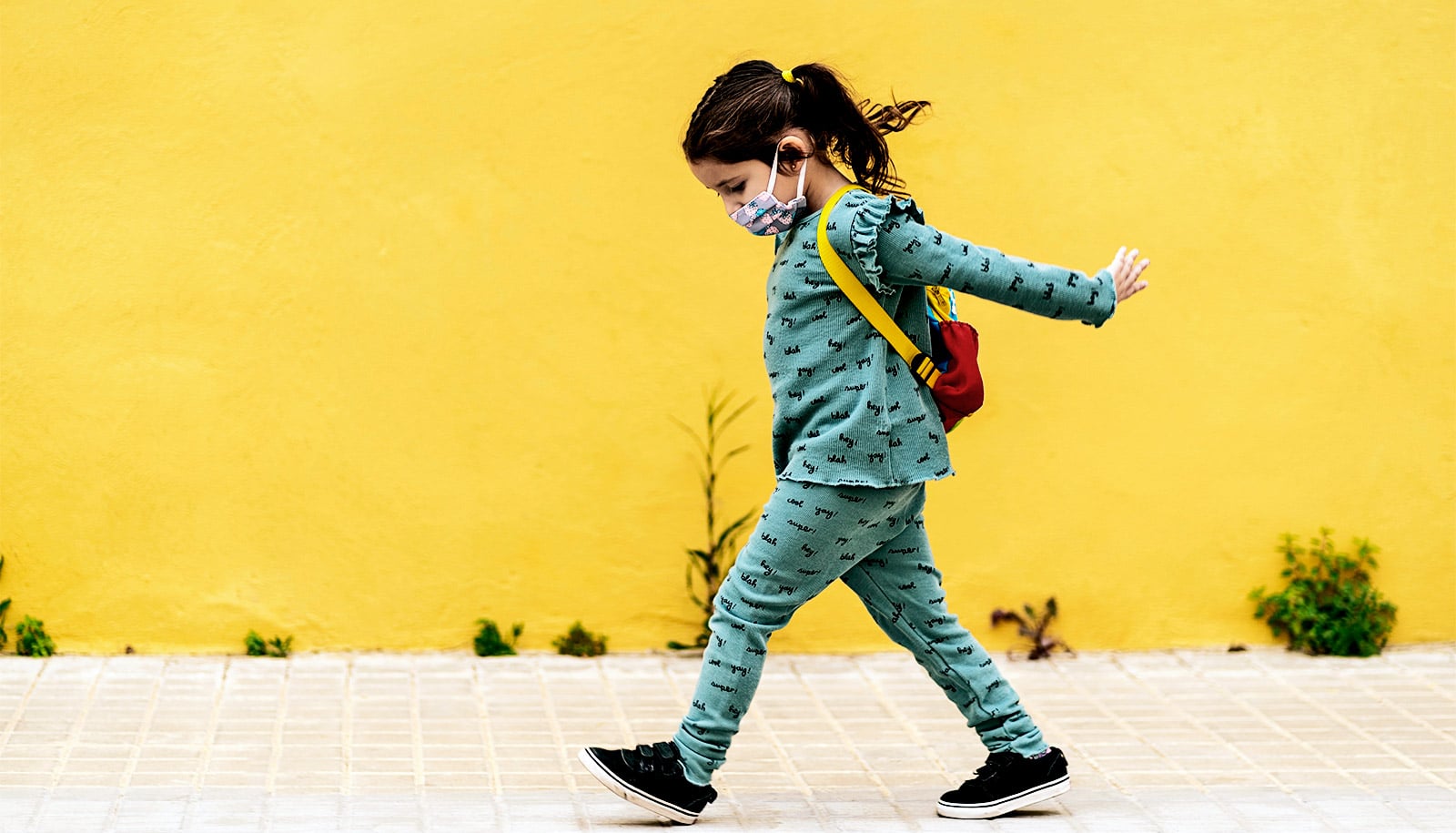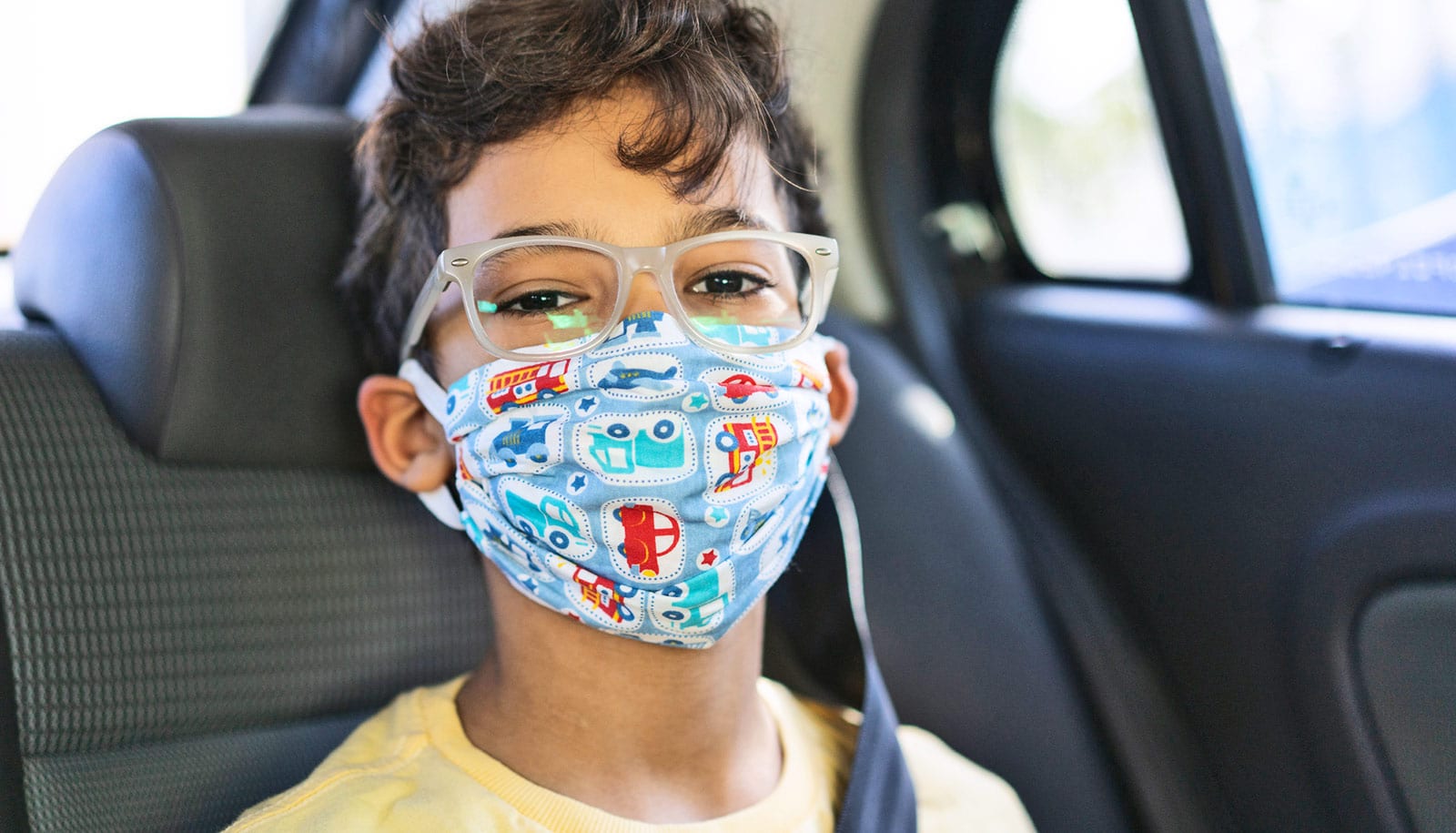As vaccines become available for younger people, Nathan Price has answers about COVID-19 vaccine effectiveness and the risk of side effects in children.
A rise in adolescent hospitalizations in March and April led the US Centers for Disease Control and Prevention to urge parents to vaccinate their teenagers against COVID-19.
The CDC currently does not recommend vaccinations for children younger than 12, and the Pfizer vaccine is the only one approved for people 12 and older. The other two vaccines provided in the US—one from Moderna and the other from Johnson & Johnson—are only available to people 18 and older.
Here, Price, an assistant professor in the University of Arizona’s College of Medicine-Tucson’s pediatrics department, answers questions parents frequently ask about children and vaccines:
What measures were taken to test the COVID-19 vaccine on children?
Anytime we bring a new vaccine, medication, or medical device to the public, it undergoes rigorous testing. Depending on the disease, testing begins with healthy adult volunteers and then advances to others. It takes a while for testing to include children, as they don’t have the legal capacity to make decisions about their health, so there is an extra level of precaution involved.
Once COVID-19 vaccine testing moved to children, researchers started with the older age group, 16- to 18-year-olds. Of those, very few children who received the vaccine went on to become infected compared with those who received the placebo.
The children who received the vaccine had more side effects than the placebo, but they were usually minor. They also had measurable antibodies, and they were less likely to become infected. When that phase of testing was considered safe and effective, researchers began including 12- and 15-year-olds.
Scientists tested about 2,000 12- to 15-year-old patients; 1,000 received the vaccine and 1,000 were in the placebo group. None of the children in the vaccine group were infected and they had measurable antibodies consistent with immunity. They also had side effects such as headache, chills, or fatigue, but no severe reaction. Ongoing evaluation continues to be done to look for more rare or more severe side effects.
What are the side effects in children?
Common side effects include a sore arm, feeling tired for a day or two, and a minor, low-grade fever. Allergic reaction is rare and can occur with any medication or vaccine, not just the COVID-19 vaccines. The more people you vaccinate, the more of those side effects you will observe over time. To put this in perspective, you are much more likely to have a bad reaction to the disease than to the vaccine.
What is the prognosis for children who become infected with the virus?
Though the numbers of children with severe infection are a small percentage compared to adults in the US, it is a fallacy that children who contract COVID-19 do not become ill.
Recent numbers show that more teens are becoming ill from the disease. In the first three months of the year, CDC researchers found that nearly one-third of adolescents hospitalized with COVID-19 required admission into an intensive care unit, and although there were no deaths associated with those admissions, 5% of those patients needed invasive mechanical ventilation. In addition, the CDC reported that hospitalization rates among adolescents ages 12 to 17 increased from March 1 to April 24 after declining in January and February.
Even when children have done well with the infection, there is a rare post-infection inflammatory syndrome called multisystem inflammatory syndrome in children, or MIS-C, that can make them quite sick. Symptoms can include fever, difficulty breathing, rash, chest pain or pressure, confusion or inability to stay awake, and abdominal pain.
What is myocarditis, and is there a risk of myocarditis after vaccination?
Myocarditis is inflammation of the heart. It can cause chest pain, trouble breathing, irregular heartbeat and, in some cases, death. Most cases are treatable, and many have been mild.
Recently, the CDC received reports of increased cases of myocarditis in people who have received the mRNA vaccines (Moderna and Pfizer). Most of the cases occurred in adolescent and young adult males. They are still investigating to determine if this is related to having received a vaccine or coincidence.
In general, myocarditis due to COVID-19 and MIS-C in this age group is much more common than occurrences in those who have been vaccinated. (More information can be found on the CDC website.)
What advice do you have for parents who are considering COVID-19 vaccination for their children?
The COVID-19 vaccines work. There are side effects, but they are usually minor and temporary. For people who are worried about their children, I completely understand. In my home, I received my vaccine, and my two older teenagers received theirs. Now, I’m waiting for my two younger kids to be able to get vaccinated. I have confidence in the vaccine. Don’t delay. Now is the time to do it.
Source: University of Arizona



